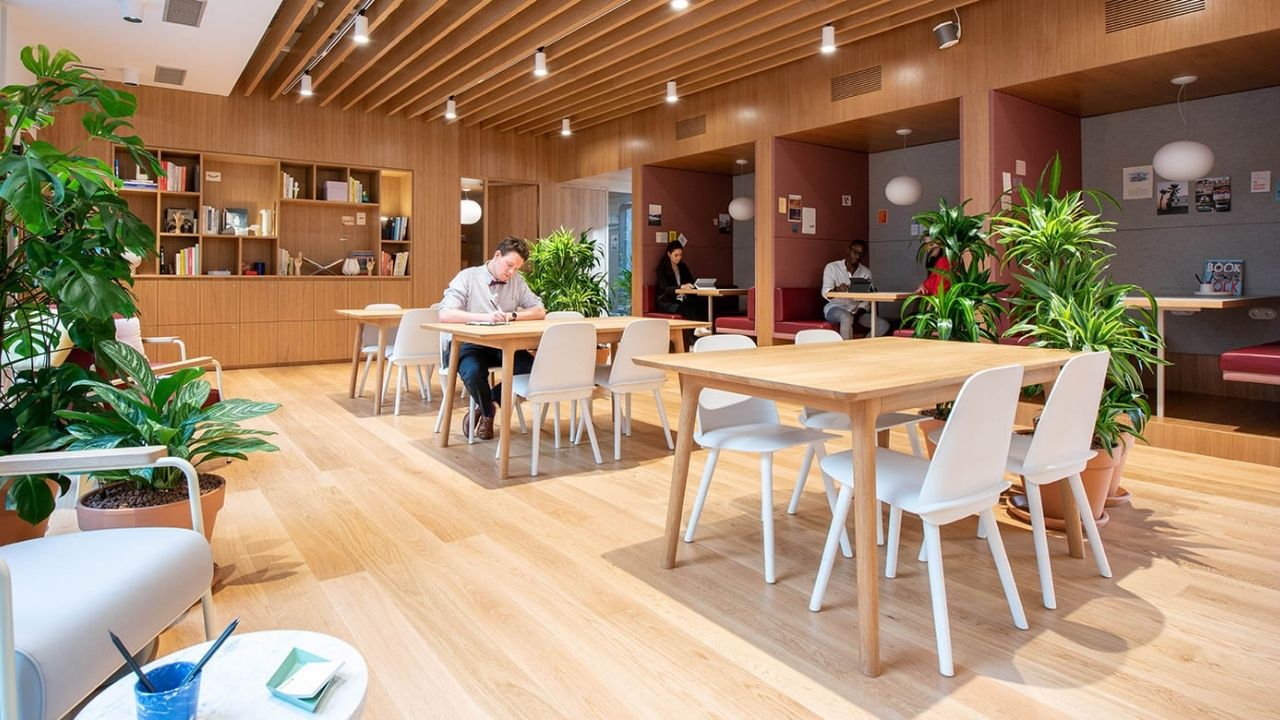- IWG is reportedly considering a breakup plan that would involve splitting its different brands into distinct companies.
- Such a break-up could create more value for IWG shareholders, if the external valuation of an individual brand is larger than its value as part of a whole.
- Sources believe the company has been considering a break-up for some time, and a potential announcement could be made later in the fall.
News sites reported earlier this week that flexible workspace conglomerate, International Workplace Group (IWG), is considering a multi-billion pound breakup plan. The plan would involve splitting its different brands into distinct companies.
This is not the first time the company has considered such an option. Back in 2019, IWG was looking to sell its coworking arm, Spaces, hoping that the coworking brand would be more highly valued than its parent company.
According to reports, IWG’s founder and CEO Mark Dixon is in the early stages of examining a variety of options that would break up IWG. Dixon is reportedly weighing the option of listing Worka, a booking app, in the US via a floatation or a merger with a SPAC, Sky News reported.
Other options include separating its owned locations from its global franchising business.
Sources believe the company has been mulling this over for some time, and a potential announcement could be made later in the fall.
Strategic Move to Offset Lower Revenue Projections
Such a break-up plan could create more value for IWG shareholders, especially if the external valuation of an individual brand is larger than its value as part of a whole. In such a case, it makes good economic sense for a company to spin out some of its brands.
The news comes shortly after IWG announced that the company’s revenue this year was going to be lower than originally projected. The break-up plan could be a strategic move to help offset the lower revenue projections.
“IWG and Mark Dixon have always made very effective adjustments to successfully come out of negative markets,” Frank Cottle, Chairman and CEO of Alliance Virtual Offices, told Allwork.Space.
If IWG goes through with the plan, IWG could come into funds that would help it accelerate the growth of the parent company and increase its trading value in the marketplace.
While no formal announcement has been made, Sky News reported that “Barclays and HSBC, IWG’s corporate brokers, are understood to be involved, as is Rothschild, which has been discussing the US listing with Mr. Dixon.”
IWG shares were trading 5% higher after the news of the potential break-up plan broke.
The Future of Flexible Workspace
The COVID-19 pandemic dealt the flexible workspace industry a bad hand. Several coworking spaces closed permanently, while others shifted to a digital community.
Still, despite the shortcomings created by the coronavirus pandemic, experts predict a strong recovery in the future for flexible workspaces, especially as more companies continue to announce hybrid work plans.
During a virtual panel last year, Ryan Simonetti from Convene said:
“As we work our way through this crisis, not just in the short term or even medium to long term, I think that flex and coworking are a strategic part of that recovery and have a massive role to play within the industry at scale.”
A report from Cushman & Wakefield released in 2020 concluded that:
“New demand [for flexible workspace] may rise from enterprise clients who, faced with economic uncertainty, need increased flexibility or they might require short-term space for employees during the slow phase-in or reentry into existing offices while following physical distancing guidelines.”
Since last year, companies have been announcing plans to reduce their real estate footprints and their plans to de-centralize the office and leverage an ecosystem of workplaces (including coworking spaces) to support remote employees.
What’s to Come?
WeWork (IWG’s biggest rival) announced earlier this month that it plans to go public in late October via a merger with BowX Acquistion Corp. The deal with BowX has valued WeWork at $9 billion. While the new valuation is a far cry from its 2019 $47 billion valuation, it’s a more realistic number.
Industrious has also announced plans for a potential initial public offering for this year. While no valuation has been hinted at, the company was valued at more than $600 million following its deal with CBRE.
If IWG successfully spins out part of its operations, it could pave the way for more flexible workspace operators to raise funds or join the public market, especially if WeWork performs well and if Industrious makes a strong IPO debut.



 Dr. Gleb Tsipursky – The Office Whisperer
Dr. Gleb Tsipursky – The Office Whisperer Nirit Cohen – WorkFutures
Nirit Cohen – WorkFutures Angela Howard – Culture Expert
Angela Howard – Culture Expert Drew Jones – Design & Innovation
Drew Jones – Design & Innovation Jonathan Price – CRE & Flex Expert
Jonathan Price – CRE & Flex Expert











